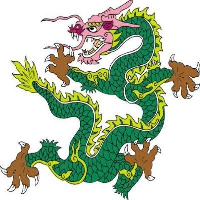What are the exam questions for intermediate economists
There are single choice questions, multiple choice questions and case analysis questions in the 2020 intermediate economist exam. In 2020, the examination system of national unified organization, unified outline and unified proposition will be implemented for the intermediate economist examination.
In 2020, the examination questions for intermediate economists are all objective questions. The examination includes two subjects: Basic Economic Knowledge and Professional Knowledge and Practice. Basic Economic Knowledge is a public subject and Professional Knowledge and Practice is a professional subject. The test papers were prepared according to 10 professional categories, including business administration, agricultural economy, finance and taxation, finance, insurance, transportation economy, human resource management, tourism economy, construction and real estate economy, and intellectual property rights.
Basic Economic Knowledge has two types of questions: single choice question and multiple choice question; Professional Knowledge and Practice sets three types of questions: single choice questions, multiple choice questions, and case analysis questions.
The examination results of intermediate economists are subject to the rolling management method of two years as a cycle. Candidates must pass all the examination subjects in two consecutive examination years before they can obtain the professional and technical qualification certificate of intermediate economics.










